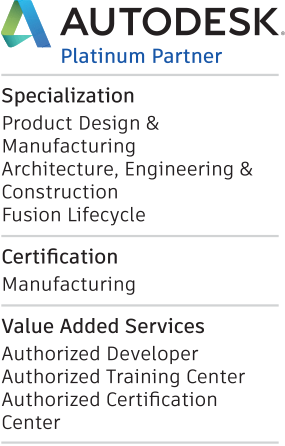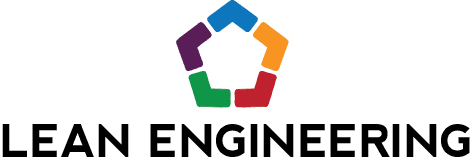I don't know if I've ever been surrounded by so many SOLIDWORKS users at once in my life. OK, that's not technically true - I've been on demos for entire companies running SOLIDWORKS - but this was a little different. Several students weren't even there for the Fusion 360 Workshop, but just happened to be in the lab as I was setting up to start. Good, more students to see what I was about to show! I guess holding it in a computer lab instead of a closed classroom wasn't so bad of an idea after all..
.jpg)
In case you're wondering what story I dropped you into the middle of, here's some background. I just finished a couple Fusion 360 workshops at two Oregon universities, Oregon State University and Portland State University. The students who were lucky enough to catch the workshop learned some new things they can use right away. Some former non-Fusion 360 users have now dowloaded it and are also exploring new ground!
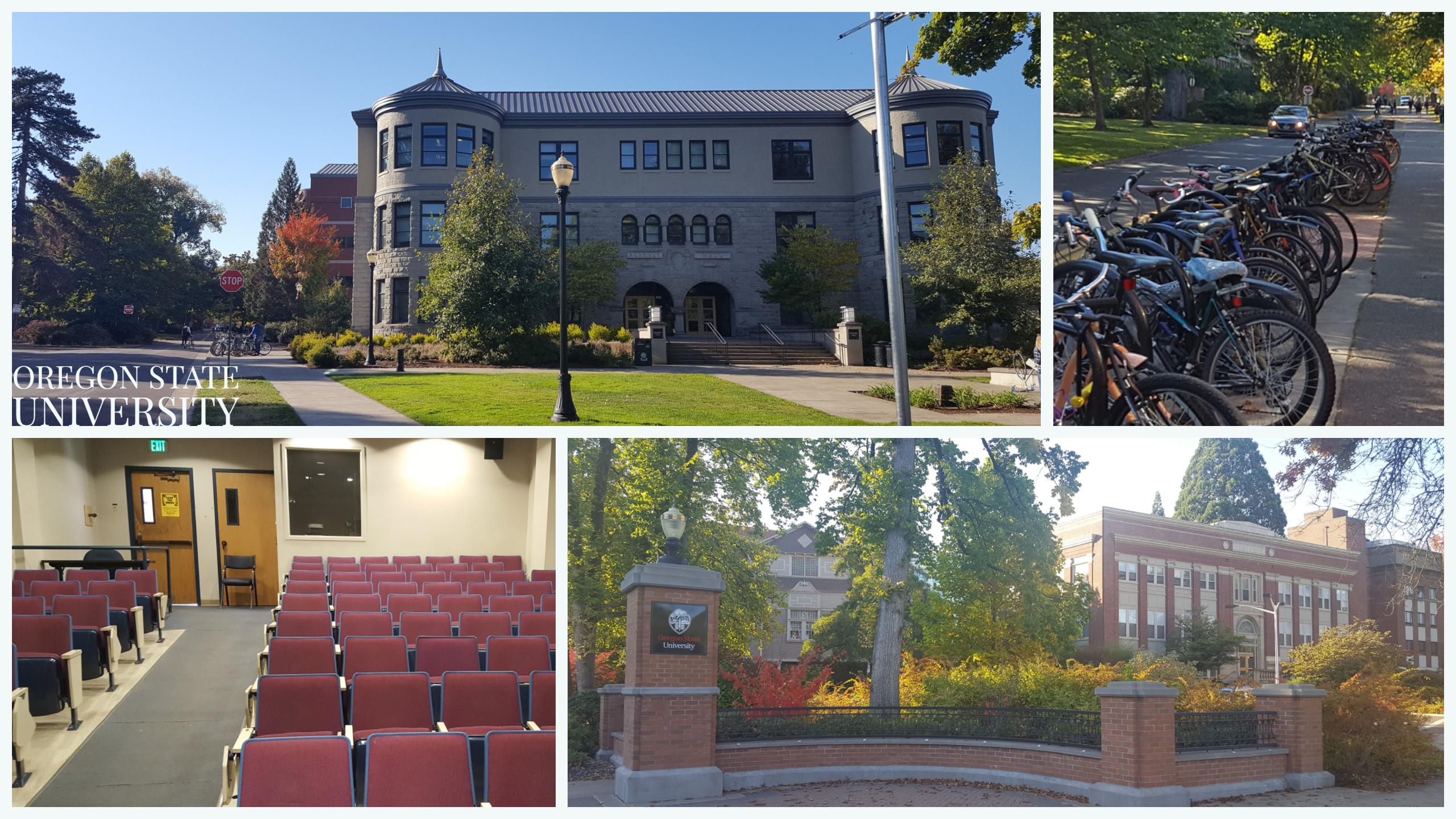
How did it get so sunny in western Oregon?
So, back to what I was saying. This is where my story changes directions a bit. Instead of simply telling you about the event, I'm going to dig in a little deeper. The interesting thing to me: I got the feeling from many of the students that they were being almost defensive about their modeling program of choice. And of course, why wouldn't the students feel this way? SOLIDWORKS is installed at their University on every computer in the engineering labs. If students want to create any design, they have free access, and it's probably all many of them know. It's as if they're being taught 'this is the only design tool you should take seriously.' Now, I don't attend classes there, so to be clear I'm not saying that's what actually happens. Also, not all the students I interacted with gave that impression. This is just the feeling I got in general. In fact, many of the students had never even heard of Fusion 360 (or Alias or Rhino or Catia or Pro-E, or even Inventor for that matter!)
In my opinion, the school is a place where they should have access to multiple design programs. There's not a monopoly in Industry, so the students should be prepared to enter the workforce with a variety of software experiences. Of course, I understand logistically that's a hard problem to tackle. More programs to install, less time to learn or become proficient in any of them, and the list goes on. But at least an awareness of all the technology and options out there would be a good thing for a new student entering the workforce to know. And I guess that's where I came in.
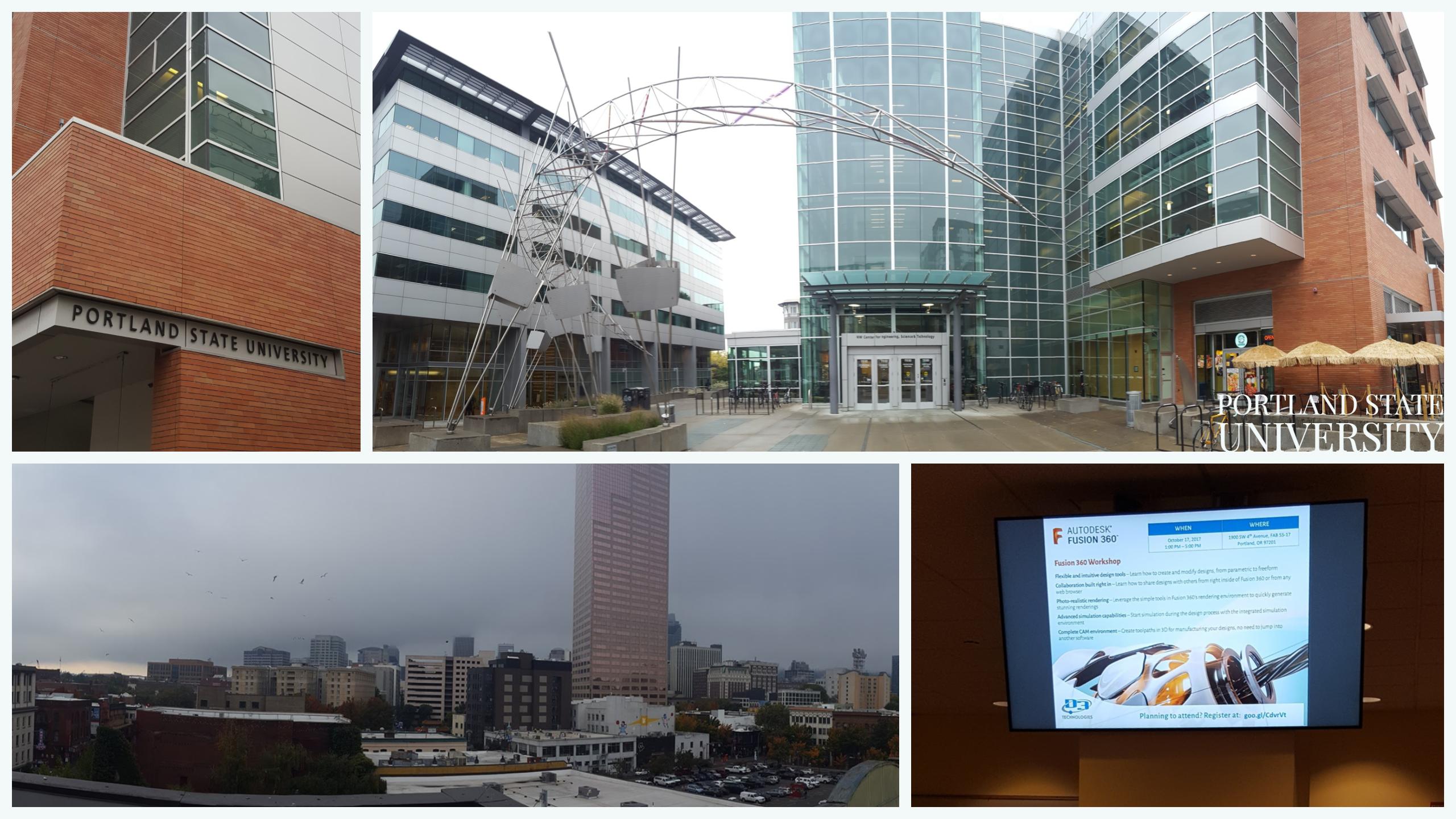
OK, well I guess I just needed to wait a day for the rainy weather I was expecting
Even with all I've said about the challenging air of the workshops, I didn't feel nervous or apprehensive at all. I know how awesome of a program Fusion 360 is evolving into, and I was excited to be there to help open some eyes. For the few students who have already been using the program, we got a lot of good Q&A during the demonstrations. We were able to show a variety of Fusion 360's capabilities, from the integrated sculpting, parametrics, and direct modeling, to CAM, Rendering, and Simulation workspaces. For the students who hadn't heard of Fusion 360 yet, well let's just say they saw some very impressive stuff. One student downloaded and installed Fusion 360 right on the spot, just from what he saw in the Sculpt environment. As-built joints were a huge hit in one of the other sessions.
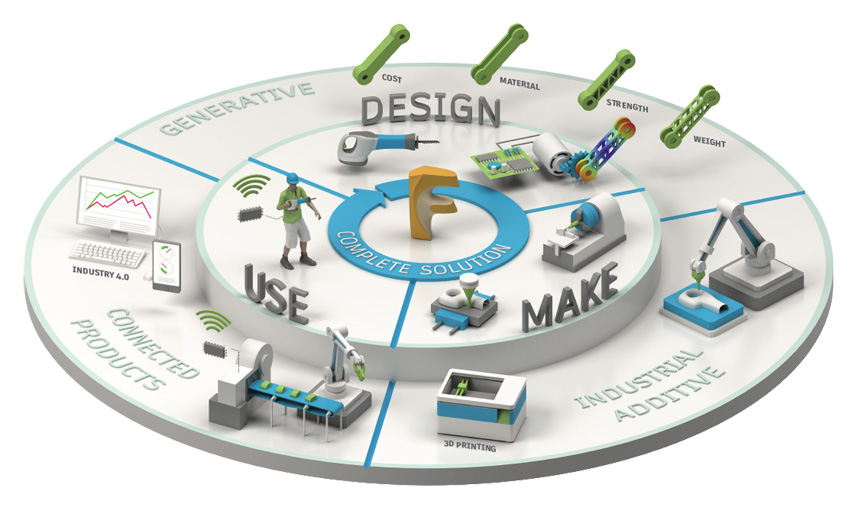
My hope is that from these workshops and events like them, people will be able to see the power of Fusion 360 and the value proposition it offers. Those students who saw it this week will start using it. They'll tell others. It should really start growing exponentially before long. Fusion 360 deserves to be known and heard about.
Maybe you feel like I'm too optimistic about Fusion 360? I think there are some people who maybe saw it a few years ago when it was more limited, or maybe had some small issue they couldn't quite get through. Instead of reaching out for help, they just dismissed it outright. (if you're wondering right now how to reach out for help, this is one of the main reasons D3 exists!) Take this quote from a student in the prototyping lab which I popped into after one of the events just for fun, to see what kinds of printers and machines they were running:
It's no SOLIDWORKS, that's for sure!
No, he didn't mean it in a good way either. Intrigued? I think you'll appreciate the rest of the story, but I'll save that for my next blog post!
Do you have thoughts or opinions about the software culture in our universities? Or maybe you just want to tell me that SOLIDWORKS is the only real design program out there. I'd love to hear from you, feel free to join the discussion below or on any of D3's social platforms at the bottom of the page.






